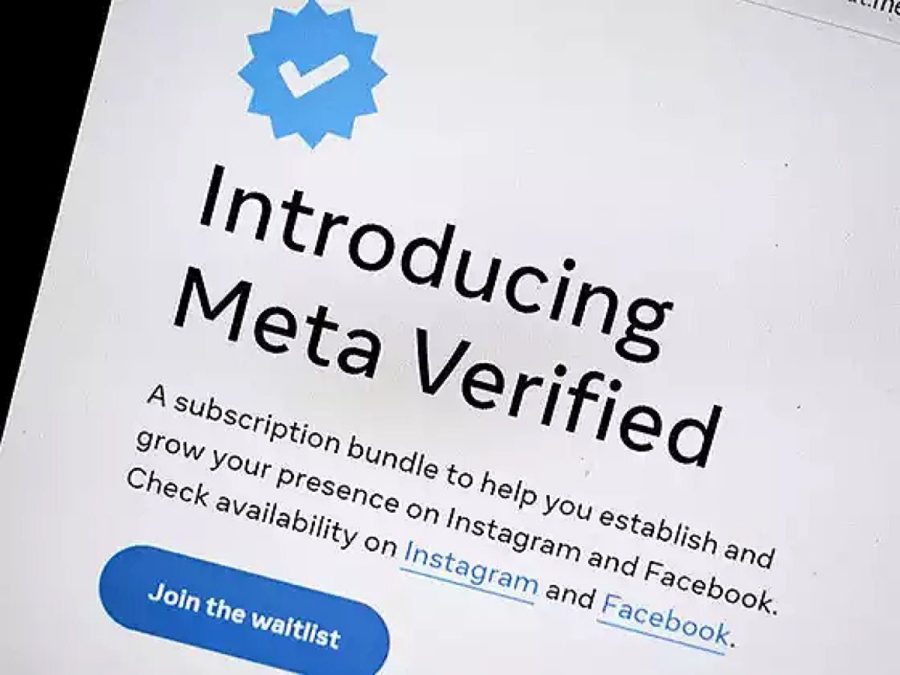Meta Verified Exploits the Necessity for Cybersecurity
In lieu of CEO Elon Musk’s decision to charge Twitter users a monthly fee for that coveted blue verification check, Meta has followed suit, with their recent rollout of Meta Verified. While the move will increase security for those who pay the monthly fees, the precedent it sets is problematic.
Meta Verified will allow its users verification services — guaranteed security and engagement enhancements — if they pay the $11.99 monthly fee for the web or $14.99 for iOS. This marks a massive shift, as so far the blue checkmark has been reserved for a select group of public figures and experts. Musk criticized this old method, calling it a “lords and peasants system,” and seems to see his and Meta CEO Mark Zuckerberg’s decisions as more egalitarian approaches to social media. However, this is complete hypocrisy.
One of the most obvious criticisms of this decision is that people shouldn’t have to pay to protect their online security at all. The sentiment is best expressed by Facebook user Jason Waterfalls, who tweeted: “making users pay for account verification and security services is like a car manufacturer charging extra for seatbelts and airbags. Twitter, Instagram [and] Facebook gotta do better.” He’s right, security should be a given, not an add-on.
Meta Verified being a premium and paid-for service is absolutely strategic, considering how much of a necessity online security is. Around one-fifth of U.S. adults and teens experienced their social media profiles getting hacked, just in the first three months of 2023. So obviously, there’s a problem with identification. However, apps like Tinder offer the same blue-checked promise of security without asking its users for money. This only reinforces the idea that a user shouldn’t have to pay for these features. Instead of equalizing the process of verification, both Meta and Twitter are replacing the old social media feudalism with a new hierarchy: one based on wealth instead of intellectual or social status.
Additionally, the move has also been criticized by cybersecurity experts, who think this racket will have a crazy upsell effect on customers. They see the blue check as becoming the “have or have-not” of social media security. And in my own opinion, giving someone the choice to pay for something perceived as necessary isn’t choice at all; it’s exploitation.
This is all especially ridiculous considering that every user of social media — whether they realize it or not — are already paying for these platforms with their personal data.
Social media data mining is an incredibly profitable business. Advertising as an industry has always been around, but only until the existence of Facebook have companies had the opportunity to cherry pick a desired audience. By this point in the age of media literacy, most people probably understand that the awesome-hipster-T-shirt-of-their-favorite-band’s presence on their Instagram feed isn’t a coincidence. By making it desirable to show off all aspects of our lives to our hundreds (or thousands if you’re really cool) of followers, these third-party social media sites gain access to all of this precious data and subsequently sell it to advertisers. All of our posts, comments, likes — everything down to the seconds spent looking at an image on these sites — are desired commodities.
In my opinion, it’s only the general populous’ acceptance of data mining that has made decisions like Musk’s and Zuckerberg’s possible. Like I wrote earlier, we generally know that the things we see on advertisements are curated towards us. And historically, we’ve accepted this selling of our data as a baseline condition of social media. In my view, this is primarily the fault of social media companies, who (based on my experience with the terms and conditions pop up) strategically try to make their policies impossible to read and leave us to sigh at our screens mouthing something like “oh well.”
Through our lack of protest and dependence of social media, I think we’ve de-valued the necessary data that we provide. It is imperative that we view our data as the premium commodity that it is, if it has to be commodified at all, and demand more from social media companies in return. The benefits — especially in terms of security — that this expensive verification process provides feels like a proper place to start.
Emma Foley, FCRH ’24, is an English and philosophy major from Burlington, Conn.










































































































































































































